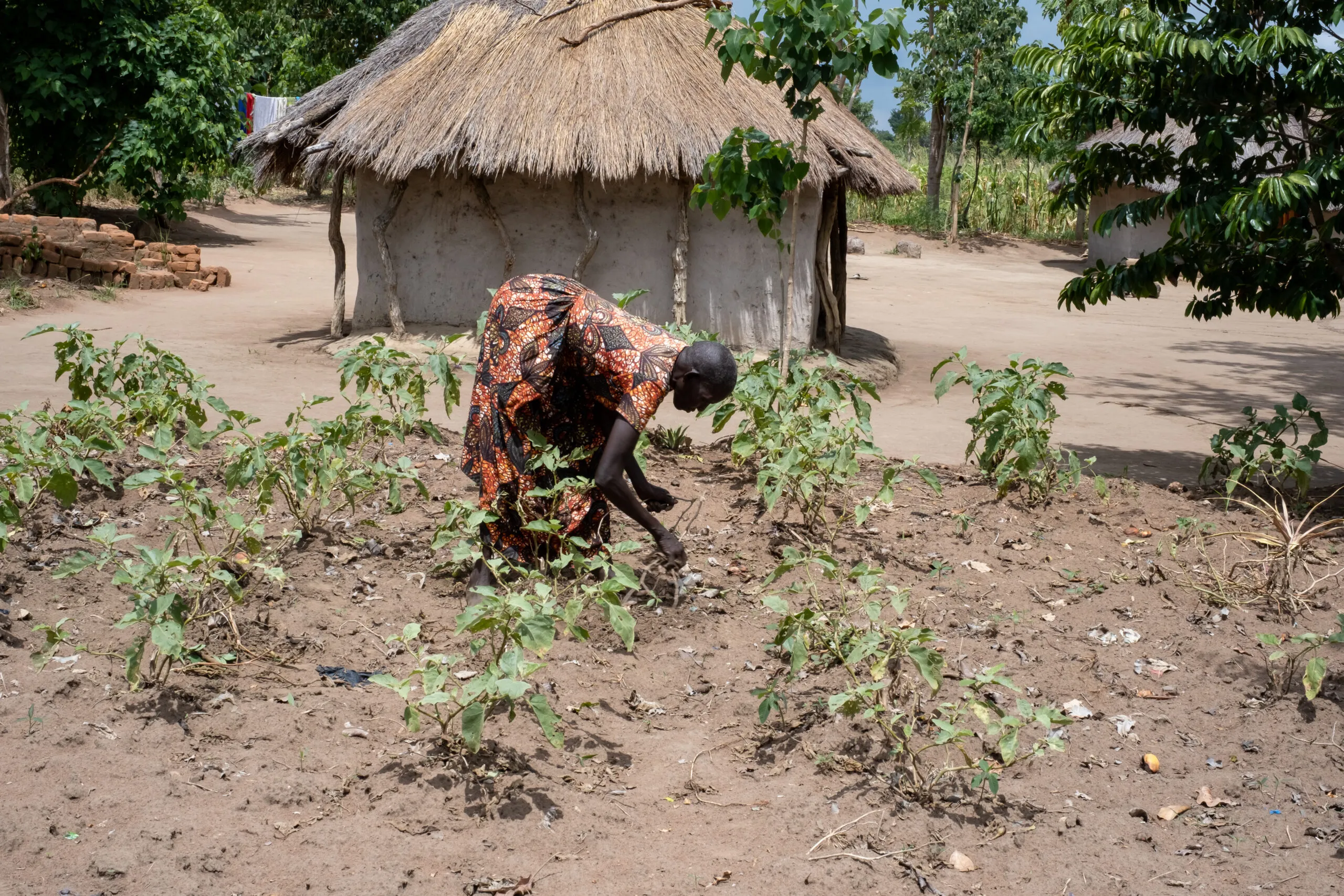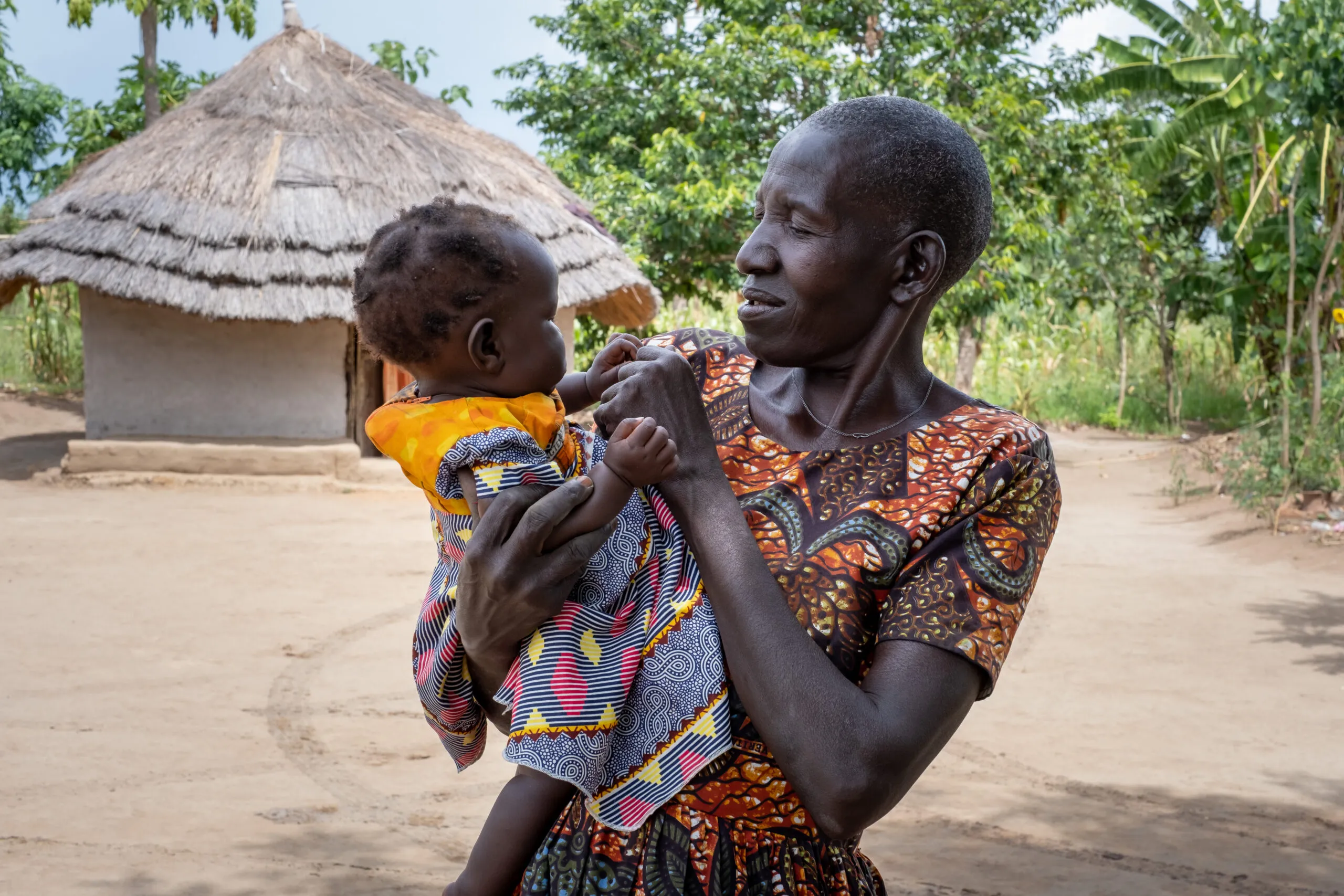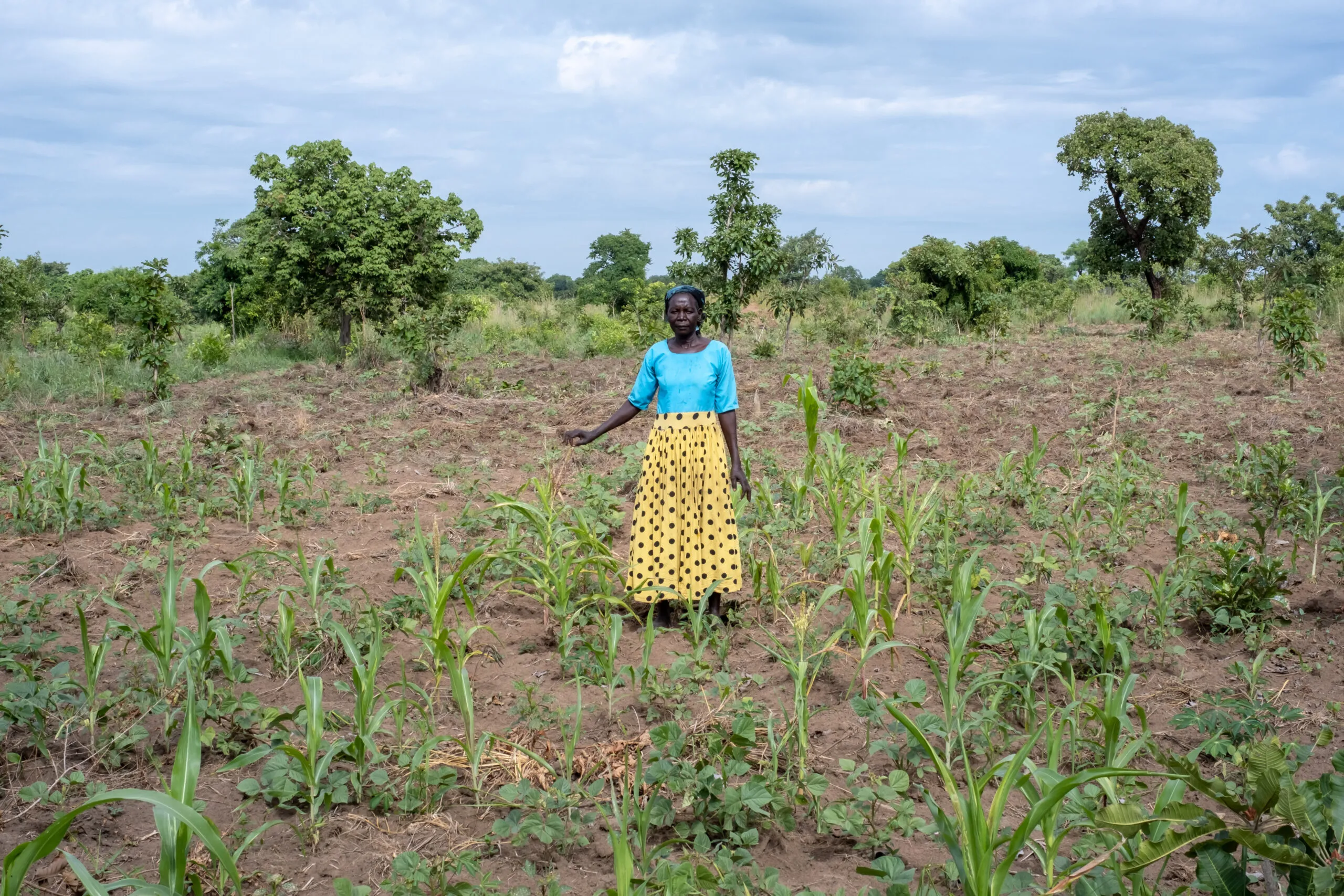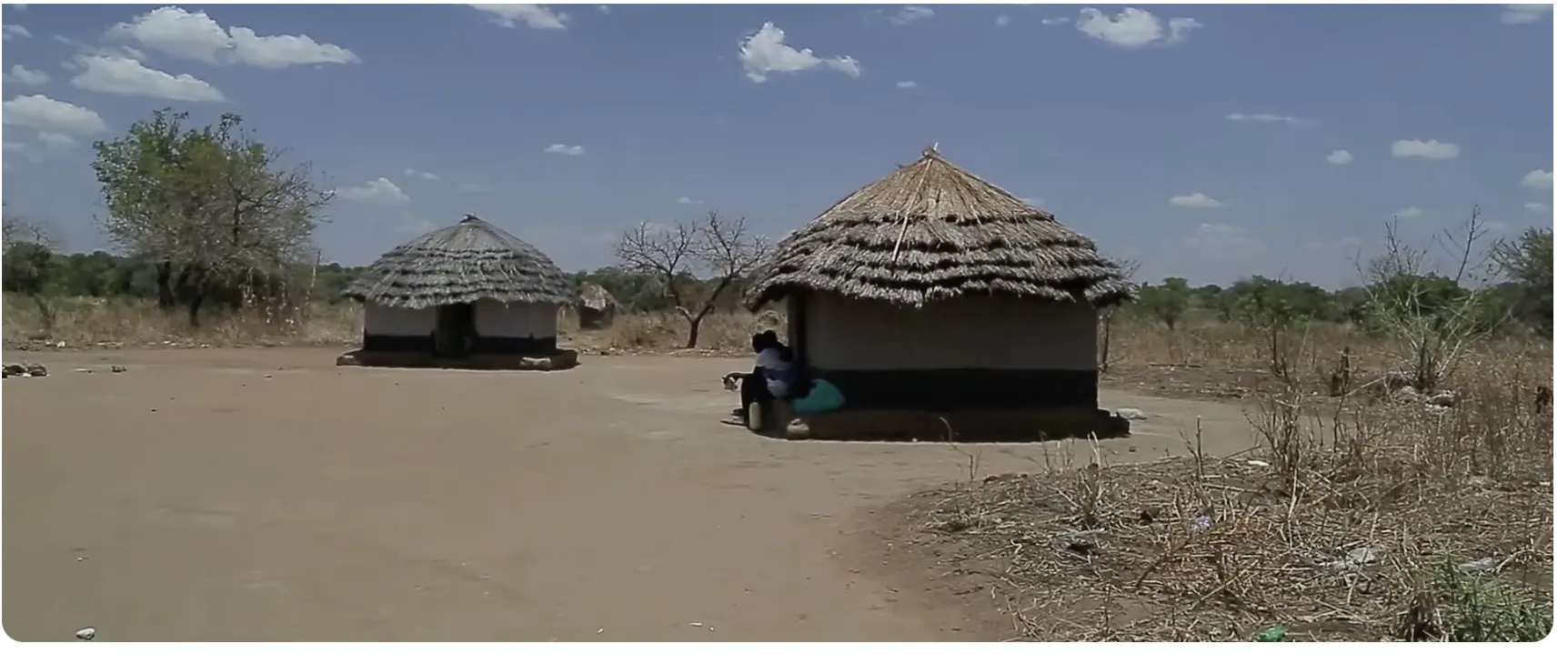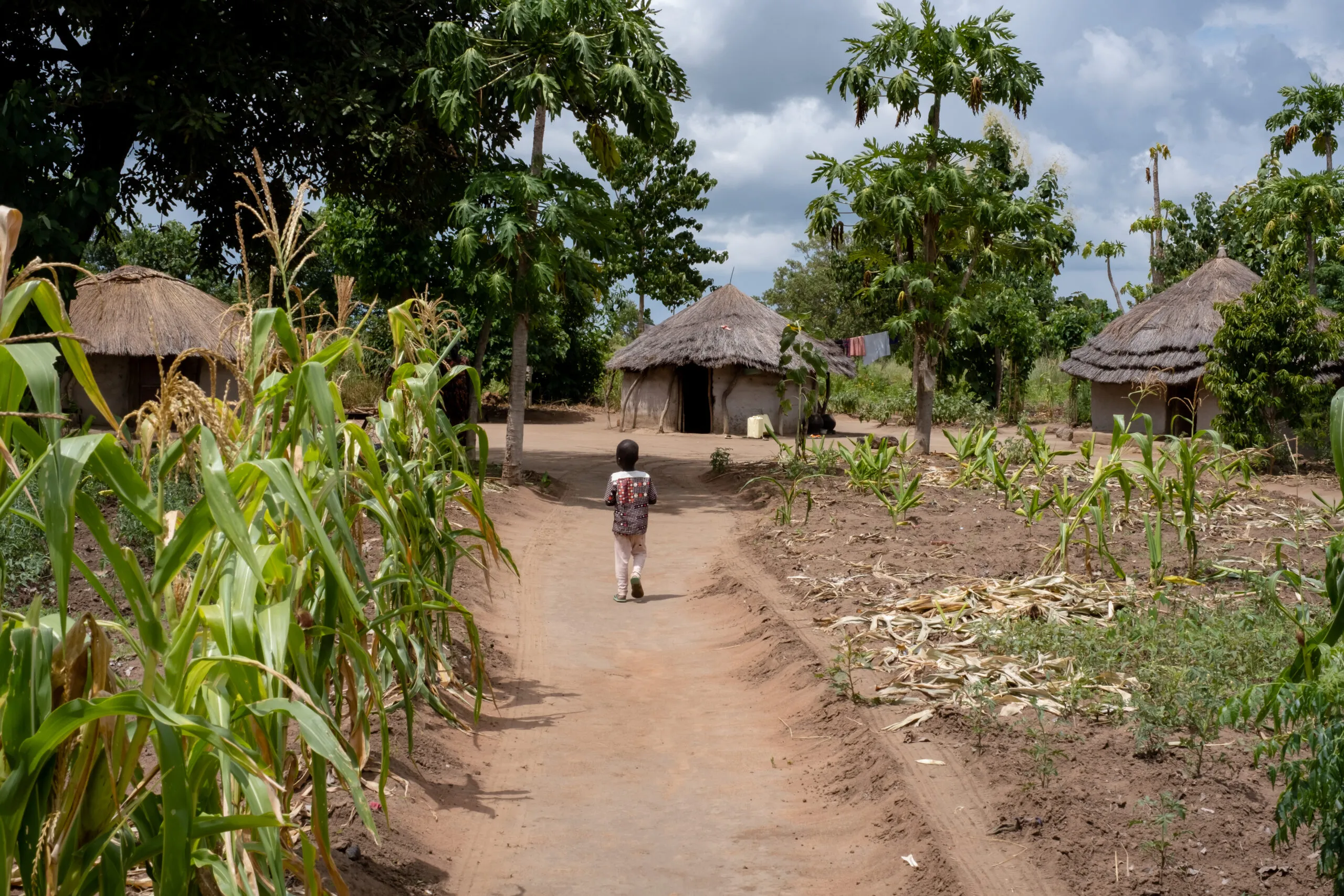The Greater Horn of Africa where Ajina lives is suffering from the longest and most severe drought on record, according to the UN. The region has had six consecutive “rainy seasons” without rain. Millions of people are facing acute hunger, and over 1.75 million people have fled their homes in search of food and water.
In Uganda, increasing variability in weather patterns and rising temperatures have hurt crop production, livestock, and access to water, threatening lives and livelihoods, including Ajina’s.
Unpredictable weather patterns have made it difficult for farmers to harvest crops, and the last two years have been particularly challenging, Ajina says.
“We have bleak prospects. Things are several times worse than they were before,” she says. “If you came a few years ago, you’d find me drying millet in the compound.”
‘Nothing to store’
Anjina has 10 granaries on her compound, all used to store grains and other crops she harvested. Over the years, they have become obsolete “because there is nothing to store,” she says.
Her family used to eat three meals daily but now can only scavenge enough food for one. As the situation worsens, much of the responsibilities to provide have fallen on women.
She has experienced that firsthand. She says her husband has turned to alcohol, spending his days drinking while she fends for the family. Her sons have done the same, leaving her and her daughters-in-law to provide for the children. She said this practice is rampant, with substance abuse increasing as men intoxicate themselves with locally-made alcohol to cope with the pressure of increasing poverty and hunger.

